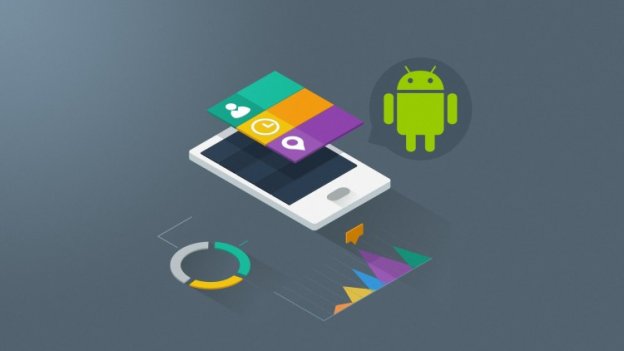The world of mobile app technologies grows bigger and stronger with each day. Data shows there are more than 2.56 million apps for Android users in Google Play. That makes the store with the biggest number of available apps. And in the world of Android programming, the debate between Java and Kotlin is a serious one.
In fact, Java vs Kotlin is one of the most popular and common search items. Today, we will take a look at both apps, and compare them to define which one works better for you.
Quick summary of Java
Java is one of the most popular languages in the world of programming. Established in 1995, Java has a supreme position in terms of popular programming languages. To this date, the app holds the highest usability record with a huge number of developers and systems.
Entrepreneurs nowadays prefer Java developers to build them tailor solutions. And there is a simple answer to why. Google still utilizes Java for building Android mobile applications.
Java is also the primary driver of eCommerce engines. And that includes Amazon and eBay.
Quick summary of Kotlin
In the past few years, developers felt the need for a more modern programming language. And Kotlin fills that gap. In the past few years, Kotlin got declared as the official language for Android apps. Google made that announcement in 2019.
Kotlin is a statistically typed programming language for Java Virtual Machine and JavaScript. Kotlin introduces functional features that support Java. Kotlin came to popularity due to the need for heightened productivity and improving coding experience in a practical way. Kotlin enables mixed-language projects and introduces improved syntax.
As a result, more enterprises now want to migrate to Kotlin or plan to do it in the near future. For starters, Uber, Airbnb, Netflix, Twitter, and Evernote plan to switch to Kotlin for Android applications.
How do they Work?
Let’s take a look at how these programming languages work.
Java works on the principle “Write Once & Run Everywhere”. This is a great way, and it offers platform independence. The language is concurrent, class-based, and object-oriented. Java delivers execution of an engine, compiler, and a set of libraries. Some would say Java derives most of its syntax from C & C++.
Kotlin, on the other hand, is an open-source platform based on JVM. Users can also compile to JavaScript, Android, or Native and run on iOS. Kotlin is compatible with Java stacks. KOtlin focuses on interoperability with Java code.
We have to note that Java holds the title for most popular programming languages according to TIOBE Index. It is the second most searched language in PYPL. Yet, more than 50% of the professional Android developers use Kotlin for their app development.
The Definite Difference Between Java vs Kotlin
Some would say Java served as the past of Android programming and Kotlin is the present and the future of Android development languages. Here are some major differences between the two. Here are some Java issues that Kotlin can solve:
- Raw types of any kind
- Arrays don’t have invariance in Java
- Java’s SAM-conversions do not have function types
- Wildcards are not required to deploy or utilize site variance in Kotlin
- Java has checked exceptions, but Kotlin completely eliminates this need
Here are some exclusive features to Java. Kotlin doesn’t have these.
- Static members
- Multiple types of wildcard
- Checked exceptions
- Primarily non private fields
- Ternary operator
Kolin also gives users exclusive features. You cannot find them in Java.
- Availability of Null-safety
- String templates
- Smart casts
- Extension functions
- Delegation available of the first class
- Singletons
- Projections of type
- Companion objects
- Different types of data classes
- Coroutines
- Multiple types of range expressions
Google gave Kotlin a big boost after announcing Kotlin is the official programing language for Android app development. In a blog post following the announcement, Google said “Android development will become increasingly Kotlin-first”. The company also said new Jetpack APIs and features will come to Kotlin first.
Everything started three years ago, at I/O 2017. Google announced that its Android Studio IDE will support Kotlin. Before that, Java served as the primary Android app development language.
In the past three years, Kotlin’s popularity goes higher and higher. And now, more than 50% of app developers for Android use Kotlin.
Is this the End for Java?
There is no definite answer to this question. Developers have mixed opinions. On one side, Java still holds the ground as a reputable programming language with many open-source tools and libraries. But Java is not perfect. It has its own flaws and it is often subject to complications that make your job tedious.
Kotlin tries to find solutions to common programming issues and improve the Java ecosystem. In the next few years, Kotlin will grow into a more stable development option. Some Android developers see the two coexisting together. And others believe that Kotlin will outlast Java.
Kotlin has its own setbacks. But most importantly, the language tries to improve existing java models by offering solutions to API problems.
Some of the issues Kotlin solves is brevity, interoperability, inbuilt null safety, no raw types, and no checked exceptions.
Should You Change from Java to Kotlin?
Is it necessary to learn Kotlin for Android developers? There is no clear answer. But you are going to encounter the language eventually. Learning Kotlin is simple when you understand Java. Learning the basics of Kotlin can only help you in the long run.
For businesses, there are many benefits of switching to Kotlin. We have to stress that redoing large portions of your project in a new programming language is a serious decision. You should not make impulsive decisions here. Yet, there are two big benefits.
The first one is a reduced project timeline. Because of Kotlin’s brevity, the language can solve problems with fewer lines of code. Its concise nature allows many developers to read and modify the code efficiently. This, in turn, reduces the project’s timeline.
And the second, and more important, is fewer app crashes. Because of fewer lines of code, there is a lower risk of app crashes. The fewer lines support maintenance needs. The result is less surface area for bugs to hide and enhanced readability of the language. This allows developers to locate the bugs easily and quickly.
Before you make the switch to Kotlin, check whether your product team is ready for the switch. There is always a learning curve. But it is also important to see how the switch will impact your existing architecture. Changing the programing language can cause creation, merging, and deletion of some artifacts. Make sure your mobile architecture can handle the evolution of the product.






